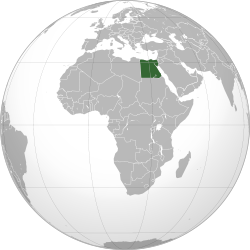Morsi Treads A Difficult Path – OpEd
By Arab News
By Osama Al Sharif
EGYPT’S contentious constitution was approved this week following a two-phase referendum with over 60 percent of those participating voting “yes”. It was a valuable victory for the Islamists who saw the poll as a vote of confidence for President Muhammad Mursi. But that victory came at a heavy price for a country engulfed by chaos, divisions and a stalled economy. Leading opposition figure, Hamdeen Sabbahi, said the referendum result proved that a small majority wanted to force its will on a large minority!

The new constitution has failed to reflect consensus among the Egyptian people. Only 30 percent of eligible voters turned out in both rounds despite calls from both Islamists and the opposition to their followers to participate. A previous referendum, on March 30, 2011, saw more than 41 percent turnout. And those who voted “yes” this week, around 10.5 million, were three million less than those who voted for President Mursi in the presidential runoff back in June.
Only three out of 27 governorates saw a majority of “no” vote, with the capital city, Cairo, the largest in Egypt, rejecting the constitution with 57 percent. This has underlined the growing gap between secular and conservative forces. But while Islamists celebrated the victory, the opposition vowed to fight on. It is important to note that many of those who voted in favor did so in the hope that stability would be recovered so that the country can deal with tough economic challenges.
The reality is that Egyptians are tired, divided and confused; delivering a starkly different picture from the one they presented to the world during the Jan. 25 revolution almost two years ago.
Now that the new constitution has been approved one would think that the country would finally come together. Very unlikely! President Mursi is being blamed by critics for polarizing Egyptians, fulfilling the agenda of the Muslim Brotherhood, to which he belongs, and for alienating liberal, nationalist and youth forces, who played a major role in the revolution. Even more dangerous is the allegation that his policies and the referendum have cemented sectarian divisions. Egypt’s Coptic minority, about 10 percent of the population, has rejected the constitution after the three main churches withdrew from the Constituent Assembly in November.
They were joined by liberal and nationalist representative, and critics pointed to controversies accompanying the draft’s adoption from the onset.
The opposition, now united under the umbrella of the National Salvation Front (NSF) after Mursi bolstered his powers in a controversial decree in Nov. 22, has vowed to continue efforts to bring down the constitution through legal and peaceful means. It has filed complaints alleging fraud and legal breaches during the two-phase referendum, while raising fears about certain articles in the constitution “which will be interpreted as a license to intervene; to give license to (Islamists) to do whatever they want,” according to Amr Moussa, whose Congress Party is a member of the NSF.
On their part the Islamist forces, including the Muslim Brotherhood, the Salafists and other religious groups, have accused the opposition of waging a media war to distort the presidency, the new constitution and create havoc in the country. Some elements have accused Arab countries of bankrolling the opposition in an attempt to discredit political Islam and blemish President Mursi’s policies.
So the president will not have much time to savor his recent victory. Soon he will have to approve tough economic measures which will raise the price of essential goods and end gasoline subsidies so that the country can receive a crucial $ 4.8 billion loan from the IMF. Such unpopular decisions will come few months before Egyptians head again to the polls to elect a new lower house of Parliament. The previous house, which was dominated by the Islamists, was abolished by the High Constitutional Court last summer.
It is clear that the opposition will use Mursi’s austerity measures to undermine the Islamists, who might not do as well in the coming elections. A divided legislature will make it difficult for future governments to carry on with economic reforms, and will certainly defy Mursi’s rule.
The biggest challenge for Mursi and his unpopular government today is the state of the economy. The series of crises and showdowns in the past two years have had their toll on the economy which depends on the flow of foreign investments and the hard currency generated by tourism. Both have suffered. The fact that President Mursi rules a divided country will not make recovery an easy matter.
Moreover, the country still faces dire problems in Sinai, where the army is fighting radical elements that have access to arms smuggled from Libya. The security situation across the country has not improved either with crimes, especially carjacking and thefts, reported on daily bases.
President Mursi will have to narrow the gap between him and the opposition in order to lower the state of political tensions that have divided Egyptians. He must convince his opponents to join a national dialogue and try to seek support for his economic reforms, but he must also make some concessions. Ending his showdown with the judiciary is now a priority. By polarizing the street he finds himself in an unenviable position of facing pressures not only from political rivals but from his own supporters as well, who would not want him to back down.
